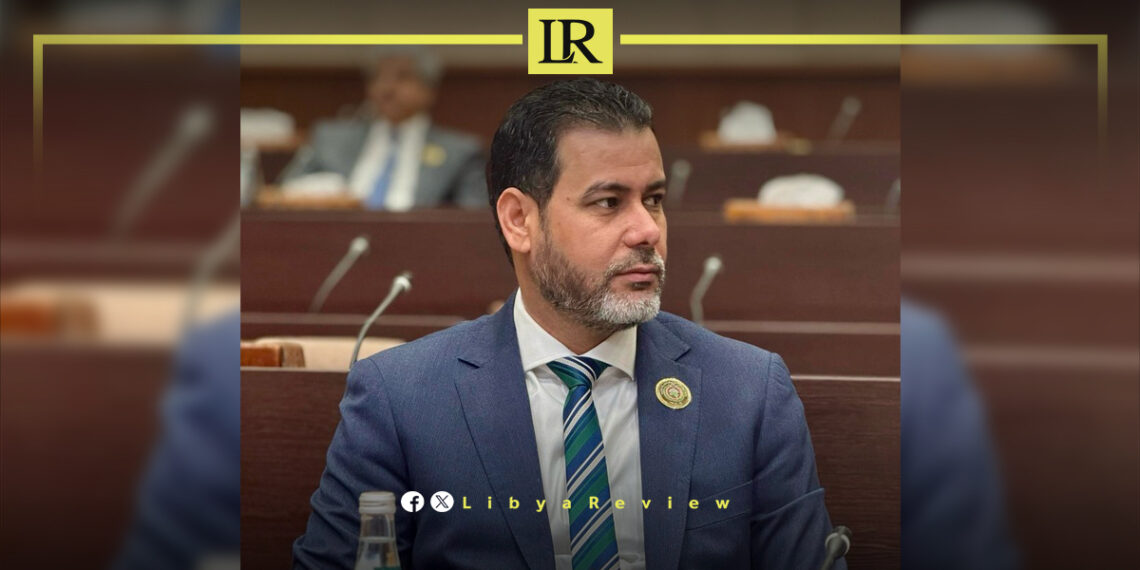Members of the Libyan House of Representatives participating in the Arab Parliament — Hassan Al-Barghouthi, Abu Salah Shalabi, Dr Abdel-Salam Nassia, and Dr Ahlam Al-Lafi — took part in the Arab Parliament’s plenary session held Monday in the Iraqi capital, Baghdad.
In its official statement on the situation in Libya, the Arab Parliament commended the developmental efforts spearheaded by the Libyan Government-designate under Prime Minister Dr Osama Hammad, and the Reconstruction and Development Fund, headed by Engineer Belqasem Khalifa Haftar.
The statement highlighted the successful completion of numerous development and urban projects across the country in record time, stressing their significant contribution to achieving sustainable national progress.
Furthermore, the Arab Parliament reaffirmed the need to foster trust among Libya’s diverse political and social groups. It stressed the importance of consensus to end political division and form a unified government capable of leading the country toward presidential and parliamentary elections as a foundation for long-term political and democratic stability.
Libya has been in chaos since a NATO-backed uprising toppled longtime leader Muammar Gaddafi in 2011. The county has for years been split between rival administrations.
Libya’s economy, heavily reliant on oil, has suffered due to the ongoing conflict. The instability has led to fluctuations in oil production and prices, impacting the global oil market and Libya’s economy.
The conflict has led to a significant humanitarian crisis in Libya, with thousands of people killed, and many more displaced. Migrants and refugees using Libya as a transit point to Europe have also faced dire conditions.
The planned elections for December 2021 were delayed due to disagreements over election laws and the eligibility of certain candidates. This delay has raised concerns about the feasibility of a peaceful political transition.
Despite the ceasefire, security remains a significant concern with sporadic fighting and the presence of mercenaries and foreign fighters. The unification of the military and the removal of foreign forces are crucial challenges.


